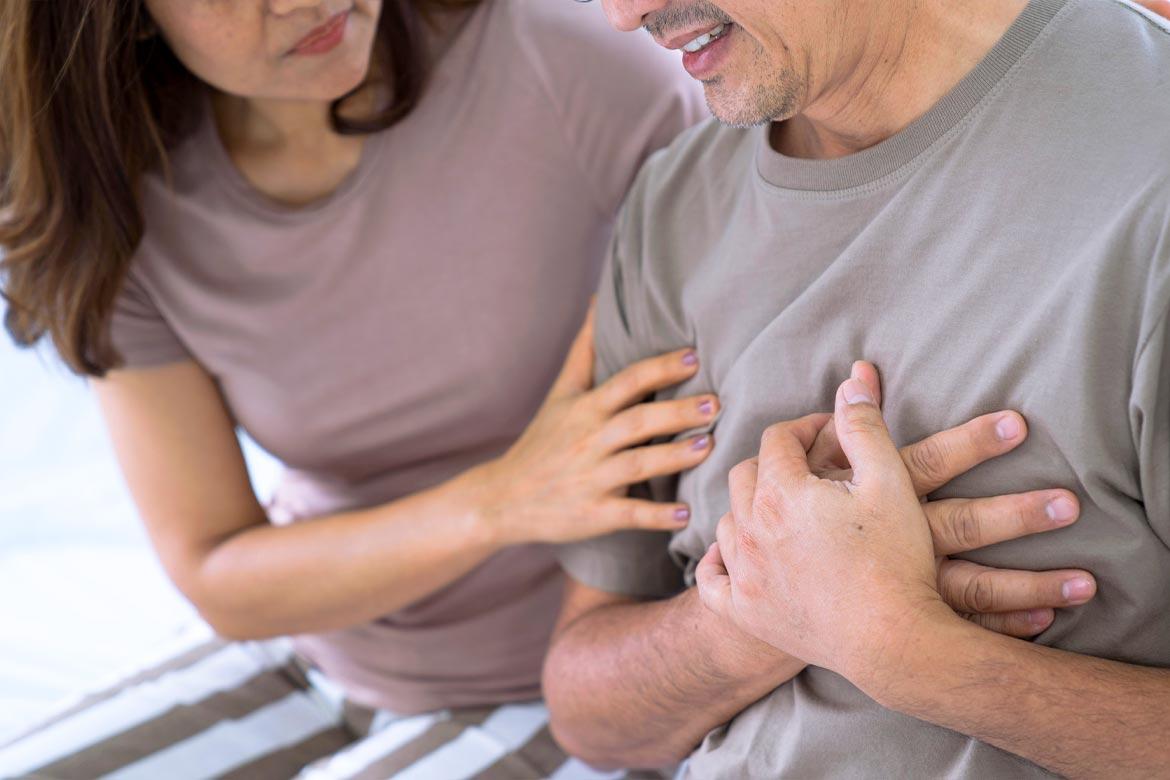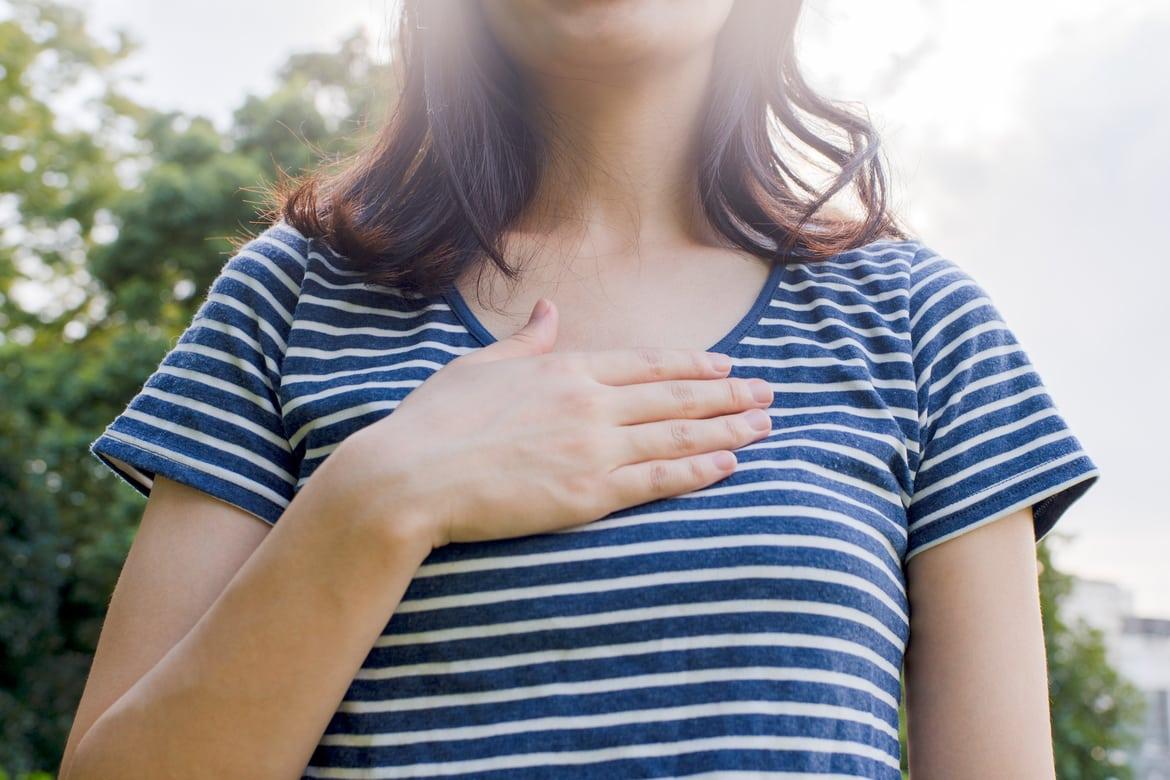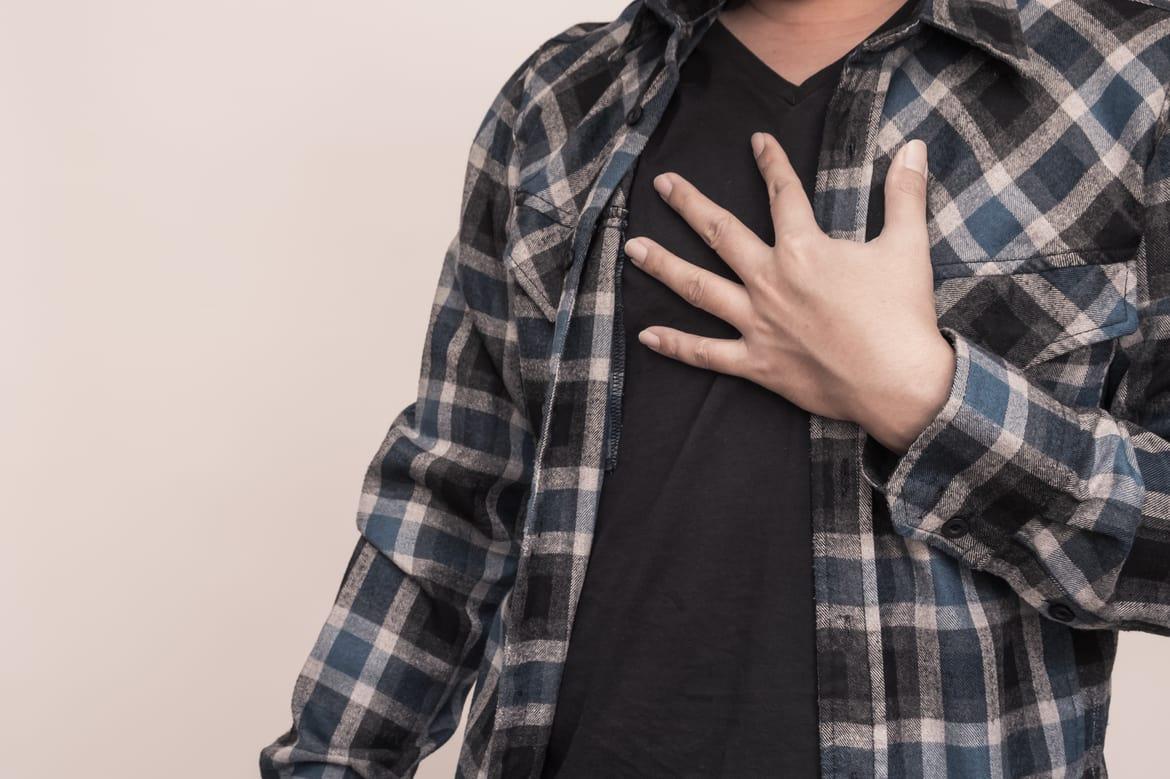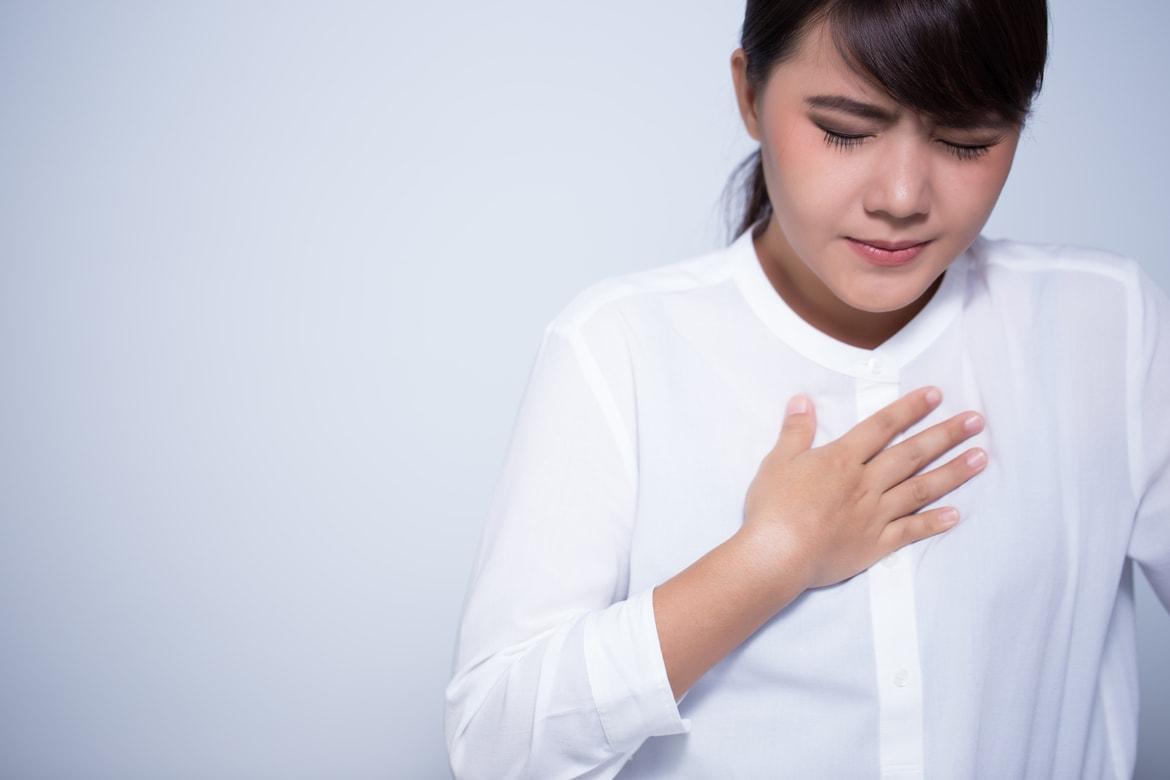
Myocardial Infarction
Frequently asked questions
A: After a heart attack, it is possible to work your way back to resuming your regular, healthy activities prior to the attack.
Combined with healthier lifestyle choices including a better diet and stress management, you can experience the same quality of life as before your heart attack.
A: You can take steps to prevent a heart attack by managing your modifiable risk factors such as diabetes, high cholesterol and high blood pressure. Your doctor may also prescribe certain medications to reduce your risks of a heart attack.
Lifestyle changes you can implement to prevent a heart attack include quitting smoking, managing stress, anxiety and depression, exercising and improving your diet.
A: The symptoms of a minor or mild heart attack are the same as a major heart attack. The only difference is that the patient has less heart damage after the attack.
Even though it might be mild, any heart attack should be treated seriously as it increases your risk of another heart attack.
A: After a first heart attack, you become at risk of another heart attack. To prevent the chances of another heart attack, you should manage any modifiable risk factors such as diabetes, high cholesterol and high blood pressure. Your doctor may also prescribe certain medications to reduce your risks of another heart attack.
Lifestyle changes you can implement to prevent another heart attack include quitting smoking, managing stress, anxiety and depression, exercising and improving your diet.
A: A heart attack can be sudden or silent with symptoms that take a while to develop. It usually starts slowly with mild pain and discomfort.
Take note of symptoms such as:
- Chest discomfort or pain that feels like pressure, squeezing or clenching, or fullness
- Feeling dizzy or light-headed
- Nausea or vomiting
- Pain or discomfort in the chest or upper body that may spread to the jaw or arms
- Prolonged and severe central chest pain (heavy and crushing sensation)
- Shortness of breath, which may occur on its own or with chest pain
If you suspect that you are experiencing signs of a heart attack, do seek emergency medical input and present yourself to the nearest accident and emergency department without delay.
A: If you notice signs of a heart attack, you need to react quickly.
Call 995 immediately or get someone around you to do so.
Describe your symptoms to the operator. If the symptoms point to a heart attack, the paramedics will be able to start treatment immediately upon arrival, and this is the fastest way to get potentially life-saving treatment.
While waiting for the ambulance:
- Do take an aspirin, unless you are allergic to it. This helps thin the blood and prevents any blood clots in the heart’s major artery from getting bigger.
- Do take nitroglycerin if you have been prescribed it in the past. This medication helps provide temporary pain relief. However, nitroglycerin does not stop the heart attack and you will still need to be treated as soon as possible.
- Do not cough repeatedly. It is an urban myth that coughing helps during a heart attack.
- Do not attempt CPR if the person having the heart attack is still talking and breathing. CPR should be performed only if the person’s heart has stopped (known as a cardiac arrest).
A: When experiencing a heart attack, the use of aspirin may help limit heart damage by inhibiting platelets, the tiny blood cells that trigger blood clotting and blocked arteries.
A daily dose of aspirin can also prevent heart attacks for people with high risk factors. However, you should not take aspirin to prevent heart attack without first consulting your doctor.
A: It is possible to experience on and off chest discomfort that lasts for days or even weeks before an actual attack. Take note of early warning signs and symptoms including:
- Chest discomfort or pain that feels like pressure, squeezing or clenching, or fullness
- Feeling dizzy or light-headed
- Nausea or vomiting
- Pain or discomfort in the chest or upper body that may spread to the jaw or arms
- Prolonged and severe central chest pain (heavy and crushing sensation)
- Shortness of breath, which may occur on its own or with chest pain
A: Yes, young people can get heart attacks. Although it is rare for a person below the age of 40 to get a heart attack, it can happen combined with key risk factors such as:
- Alcohol and drug abuse
- Diabetes
- High blood pressure
- High cholesterol levels
- Sedentary lifestyle
- Smoking
- Strong family history of coronary artery disease
A: No.
A: Blood pressure changes during a heart attack are unpredictable, and some people may experience an increase, decrease or little change in blood pressure. Doctors usually take note of other symptoms as a better gauge of a heart attack.
A: Especially in women, back pain and in particular upper back pain, may be a sign of a heart attack.
If you suspect that you are experiencing subtle signs of a heart attack, do consult a cardiologist to perform a thorough medical review and physical examination.
A: A silent heart attack occurs when a patient does not experience the full-blown symptoms of a heart attack, such as severe crushing chest pain, cold sweats and nausea. This is more often seen in the elderly patients and those with diabetes.
They may feel nothing at all, but more often, they have subtle symptoms such as:
- Discomfort in the back, arms, jaw or chest
- Dizziness or fainting spells
- Feeling overly exhausted and breathless after a few steps
- Heartburn sensation or an upset stomach
Although a silent heart attack may not have the symptoms typically associated with a heart attack, the cause is the same: the blockage of blood flow to your heart muscle. If the blood flow is not restored promptly, the affected heart tissue becomes damaged and eventually dies.
A: A person may look healthy on the outside but still have problematic arteries that can become blocked or diseased. These and other unidentified medical conditions could lead to a heart attack in an otherwise healthy person.
This coverage checker is brought to you by Health Insured, an online resource that helps you understand your health coverage in Singapore.
This page has been reviewed by our medical content reviewers.
Need help?
For enquiries, please call
+65 6250 0000 (Orchard) or +65 6898 6898 (Novena)
For appointment bookings, please WhatsApp
+65 8111 7777 (Orchard) or +65 8111 5777 (Novena)
 Brain & Spine Care
Brain & Spine Care







